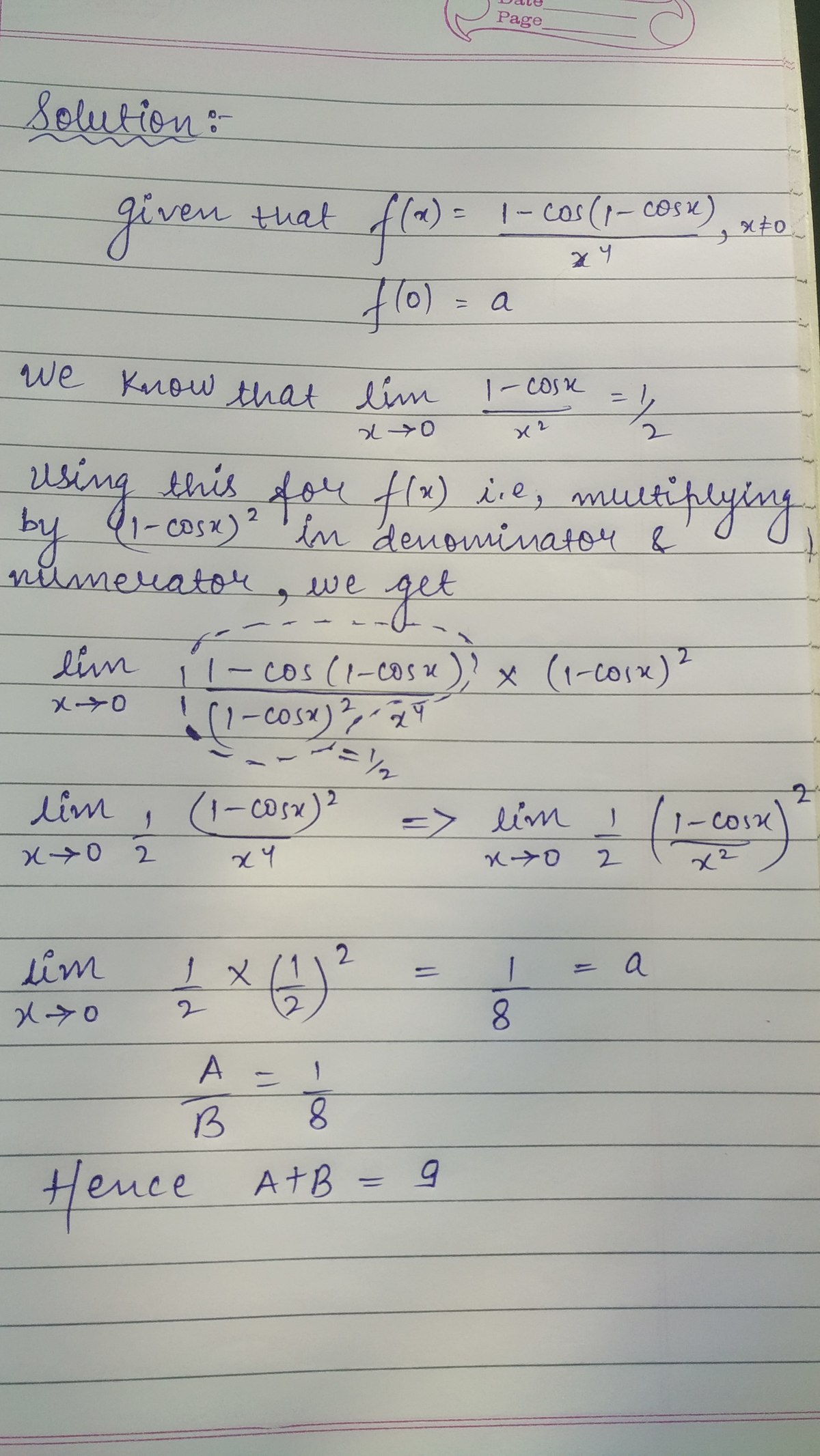Cos the limit is funny
f ( x ) f ( 0 ) = = x 4 1 − cos ( 1 − cos x ) , x = 0 a
The function f ( x ) is defined as above. If f ( x ) is continuous everywhere, then a is equal to B A for coprime positive integers A and B , find A + B .
Try my set .
This section requires Javascript.
You are seeing this because something didn't load right. We suggest you, (a) try
refreshing the page, (b) enabling javascript if it is disabled on your browser and,
finally, (c)
loading the
non-javascript version of this page
. We're sorry about the hassle.
2 solutions

Very nice approach! Great calligraphy too! ^_^
Here's an alternative solution.
For small x ,we have cos ( x ) ≈ 1 − 2 x 2 , so x 4 = ( x 2 ) 2 ≈ ( 2 ( 1 − cos ( x ) ) ) 2 . So the limit becomes
4 1 x → 0 lim ( 1 − cos ( x ) ) 2 1 − cos ( 1 − cos ( x ) )
Let y = 1 − cos ( x ) , then as x → 0 , y → 0 .
4 1 y → 0 lim y 2 1 − cos ( y ) = 4 1 y → 0 lim y 2 ( y 2 / 2 ) = 8 1
Moderator note:
You need to be really careful with that approximation substitution. There is some work involved in justifying why it can be done.
This is also a nice way. I hadn't thought of it at all. Thanks sir.